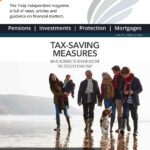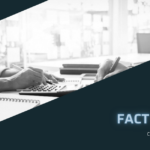3.6 million Britons have lost track of their pension savings.
The more old pensions you have, the easier it is to end up losing one. Tracing pensions from years ago can be a hassle. Over 3.6 million Britons admit they have no idea how many pensions they have and risk paying more in fees than necessary, according to new research.
The number of workers with small pension pots of under £1,000 has surged dramatically in recent years, as auto-enrolment has allowed millions of people to benefit from workplace pensions for the first time.
Paying fees to multiple providers
However, with the average employee now changing jobs 11 times in their working life, people are increasingly building up many small pots and are often losing track, misplacing paperwork or forgetting about previous schemes they are invested in.
The Pensions Policy Institute (PPI) predicts the number of small pots will triple by 2035 to 27 million. Although the government’s Pension Dashboard will allow people to see all of their pensions in one place when it come into effect in a few years’ time, it will not solve the problem of savers paying fees to multiple providers across all their pensions.
Consolidate small pension pots
While savers already have the option of combining their pensions, one in ten (10%) have no idea how to do this, while 12% say it’s just too much hassle. As a result, more than two-fifths (44%) say they’ve never bothered to track down savings from a previous employer.
Almost three-quarters (72%) of Britons now support the introduction of a new system that would automatically consolidate small pension pots as they move jobs, reinforcing strong support from the industry for the change. This would make it easier for people to manage and keep track of their retirement savings, while making the system more efficient and effective for the UK’s 33 million pension holders.
Compare the features and benefits
Even if you have not had that many jobs, you may still have a number of different pensions to keep track of. Pensions can be confusing, but there is an alternative way to help keep on top of them. Pension consolidation may allow you to combine some or all of your defined contribution pensions in one place.
Consolidating your pensions means fewer statements to keep an eye on, along with fewer and potentially lower management charges. However, not all pension types can or should be transferred. It’s important that you know and compare the features and benefits of the plan(s) you are thinking of transferring. It can be a complex decision to work out whether you would be better or worse off combining your pensions, so it’s essential to obtain professional financial advice.
Helping you stay on track for the future you want
Deciding whether to combine your pensions can be a complex decision and is not for everyone. Whether you want to consolidate into an existing pension you have with us, or you want to combine your existing pensions in a new pension, we are here to help. Speak to one of our independent financial advisers today and make sure your plans are on track for the future you want. To find your nearest adviser click here.










Follow us